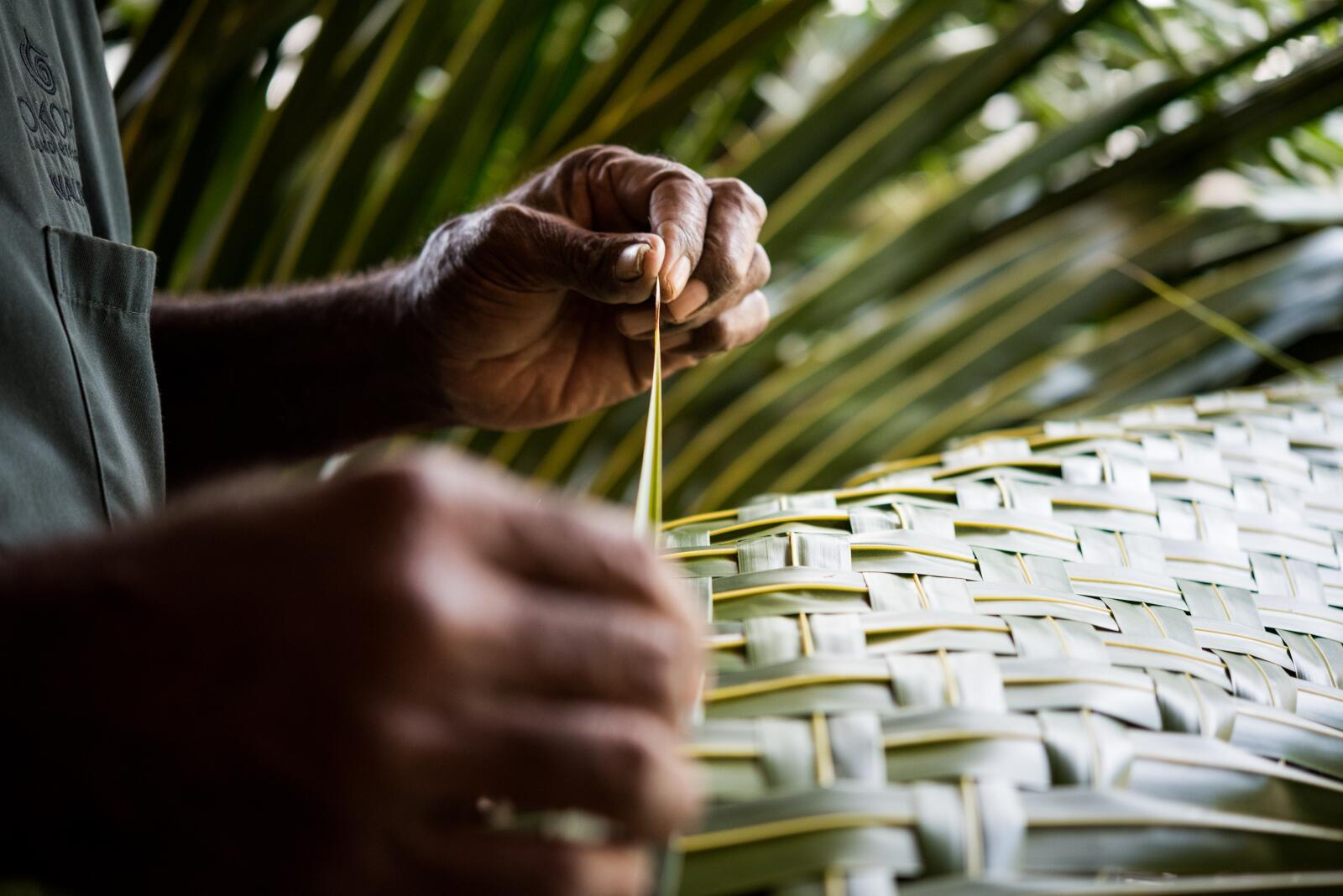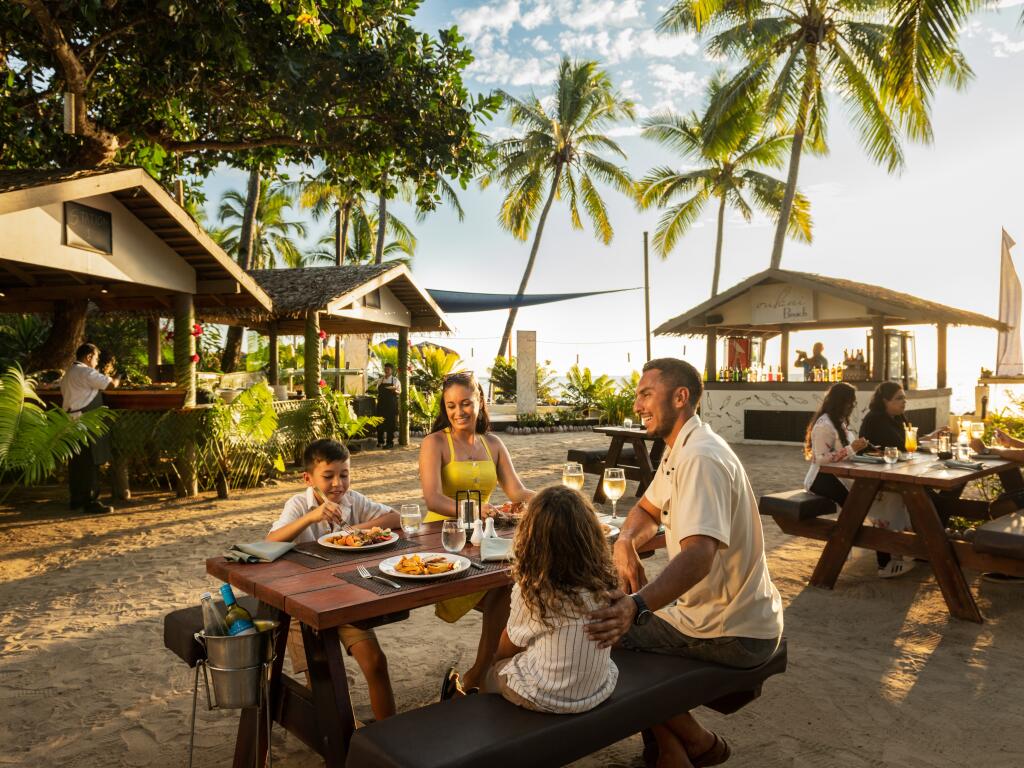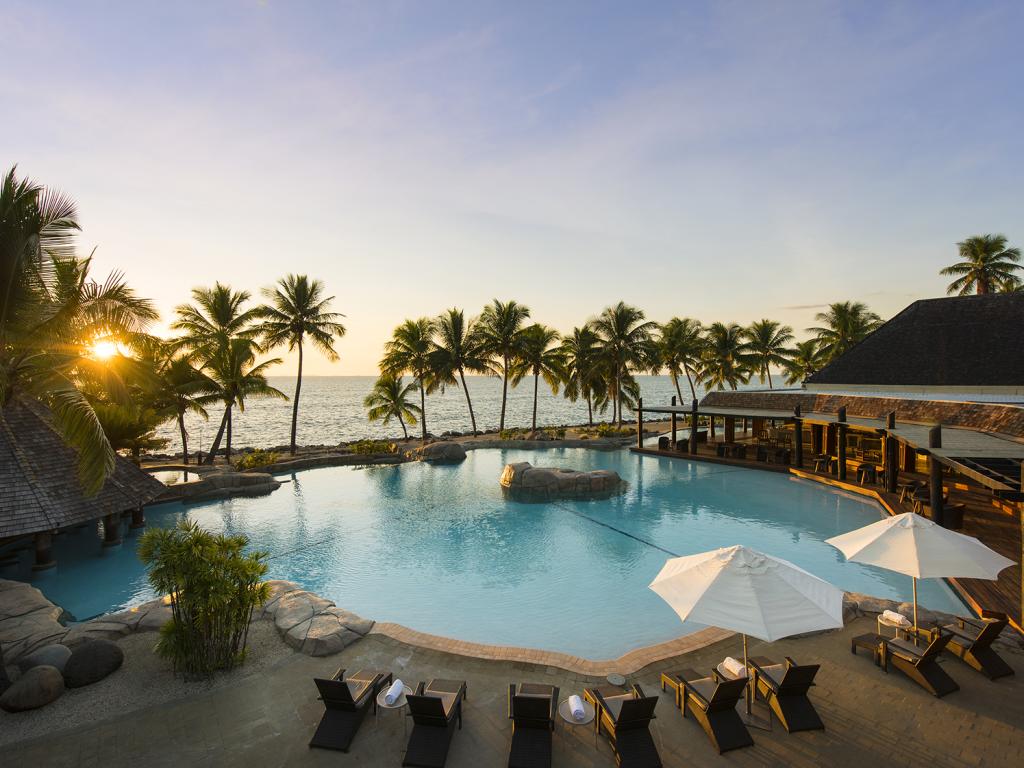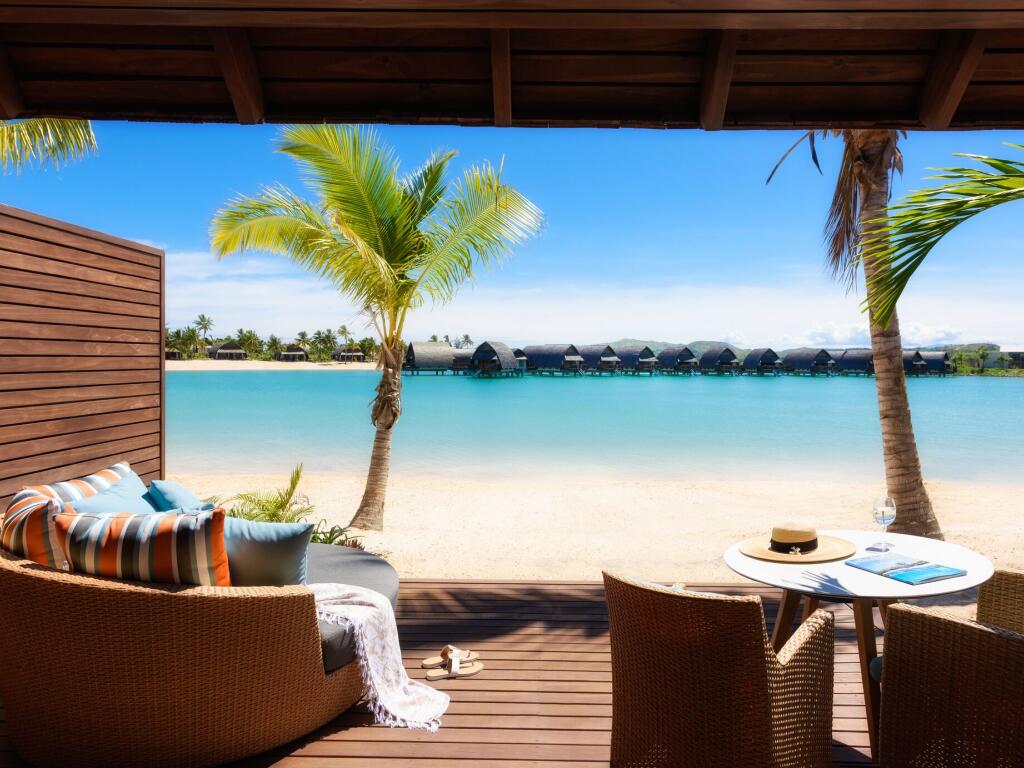Arts & Craft
Fiji is a culture renowned for its arts and craft and is often one of the biggest selling souvenirs for holidaying visitors. Artifacts are not only made for the tourist trade but also for local use and traditional ceremonies. The most common pieces are woven baskets, mats and carved wooden figures, all of which are readily available at the handicraft markets and wharves.
Weaving materials are primarily sourced from coconut and pandanus leaves, the taming of which takes a surprising amount of work and contributes to its special place with the Fiji people and tourists.
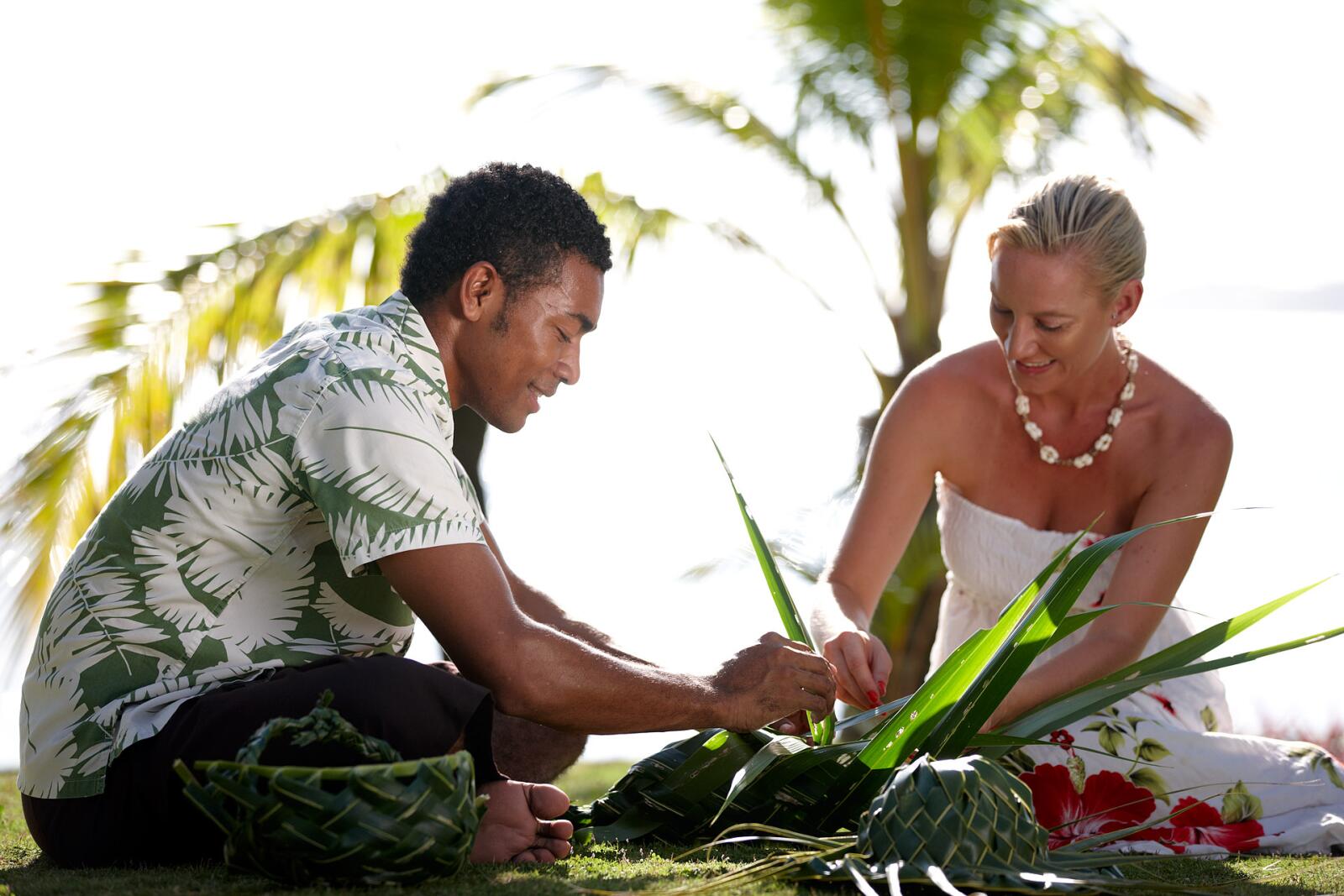
The pandanus leaves are thick and strong with spines all over. Before being stored in rolls, these leaves must be gathered, stripped of their thorns, boiled, dried out, bleached, flattened and then trimmed. To create traditional Fijian keepsakes, the rolls are then cut into ribbons and woven into the impressive mats that are now synonymous with the Pacific.
Due to its course and fine applications, the coconut palm is used widely for weaving and handicraft. The frond is split by its stem to reveal rows of leaves attached to a flexible strip before being woven to make baskets, hats and strong mats.
Tapa cloth is another of the Pacific's most popular materials and is used for both the tourist trade and in ceremonies. The cloth involves a lot of preparation and originates from the Mulberry tree. A thin white film is extracted from the new, young leaves which tightly curl inside the spine at the top of the palm. Once stripped, dried and beaten into a fine cloth, the tapa is then decorated with artwork and worn traditionally as clothing. Growing in popularity with contemporary art, tapa can now also be found in fine wall hangings, cards, wrapping and other decorations.
